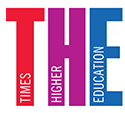Updated scientific rules for the social media age could set a global trend, with supervision neglect and management cover-ups also in the frame
Academics could soon be officially sanctioned for “unjustified” self-citation or claiming authorship despite contributing little to a project under a new code of conduct that could set a global trend.
Switzerland’s new rules are seen as groundbreaking as they drastically expand the definition of scientific misconduct to include dubious behaviour that has attracted increasing scrutiny but up to now has rarely been covered by official rules.
“To my knowledge, this is the first time that a code of conduct is expanded by a prestigious academic organisation to include several additional dimensions of how scientific work is done, credited, recognised, cited and appropriated,” said John Ioannidis, an expert on the process of research at Stanford University who has raised the alert over extreme self-citation by scientists.
Academic misconduct has traditionally been defined as fabrication and falsification – making up or manipulating data – plus plagiarism. The US’ National Science Foundation still defines misconduct chiefly in these terms, for example.
But there have been growing calls in recent years to widen this definition, as other forms of shady behaviour come to light, including “citation farms”, where authors rack up citations from their own or co-authors’ papers.
Authorship abuse, where supervisors or journal editors use their power to lever their names onto papers without doing any work, has also received growing attention.
Switzerland’s new code defines both of these practices, plus a host of others, as scientific misconduct, and lays out sanctions ranging from retraining to dismissal.
The overhaul began after the country’s national funder concluded internally that Switzerland – and indeed any country – was vulnerable to a repeat of the Paolo Macchiarini scandal, where a Swiss-Italian thoracic surgeon was found to have committed widespread research fraud, explained Edwin Constable, president of the expert group that drew up the new code.
“We recognised our 2008 code of conduct was outdated,” he said. Since then, online scrutiny of new forms of misconduct – either on social media or through new online platforms such as Retraction Watch or PubPeer – had become a part of scientific life, said Professor Constable, a chemistry professor at the University of Basel.
The new code “significantly” expanded the definition of misconduct “by including questionable research practices”, and was unprecedented at the national level, said Katerina Guba, director of the Center for Institutional Analysis of Science and Education at the European University at St Petersburg.
“Today scholars have to publish much more than they did to get an academic position,” she said. “Intense competition leads to cutting ethical corners apart from the three ‘cardinal sins’ of research conduct – falsification, fabrication and plagiarism.”
The challenge for the new code, however, is drawing the line between acceptable academic practice and genuine misconduct. For example, judging whether self-citation is legitimate or an attempt to inflate metrics requires “digging deep into a situation”, said Dr Guba.
“I certainly appreciate the attempt to clarify a very murky topic like misconduct,” said Mario Biagioli, distinguished professor of law and communication at the University of California, Los Angeles and one of those who has been calling for an overhaul of how misconduct is defined.
“But I am also surprised by the way they seem to declare certain practices ‘incorrect’ without really thinking more carefully about what such practices are, and whether they can be actually captured by those definitions.”
The Swiss measures tackle not only citation and authorship abuses but also bad management; “neglecting one’s duty of care and supervision” is classified as misconduct.
Also classified as such are “abusing a management function to instigate, encourage or cover up violations of scientific integrity” and “displaying any form of harassment or discrimination”.
Under the new Swiss code, accusers have “the right to confidentiality”. But in practice, this will likely be tricky to maintain, acknowledged Professor Constable, as many misconduct accusations inevitably identify the accuser.
Conversely, “alleging a violation of scientific integrity without reasonable cause” is also a form of misconduct, the code says.
It is now up to highly autonomous Swiss universities to implement the new code and set up arbitration, investigation and sanction-setting bodies to deal with misconduct complaints.
Swissuniversities, the body representing the country’s institutions, co-developed the code along with the Swiss National Science Foundation, the Swiss Academies of Arts and Sciences and the country’s innovation agency.
Professor Constable said that the reaction from rectors had been “very positive”.
Broadening the scope of misconduct brought a risk for university heads that they could see their “star researchers pilloried in the press”, he said, if they were sanctioned under the new rules. But the consequences of not updating the rules for the reputation of the institutions would be “far worse”, he warned.

0 Comments